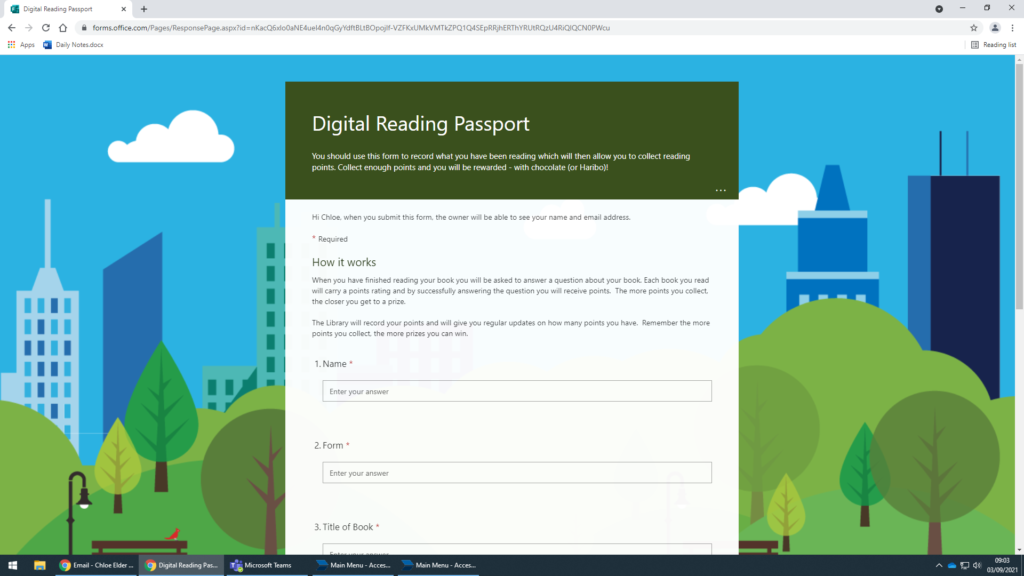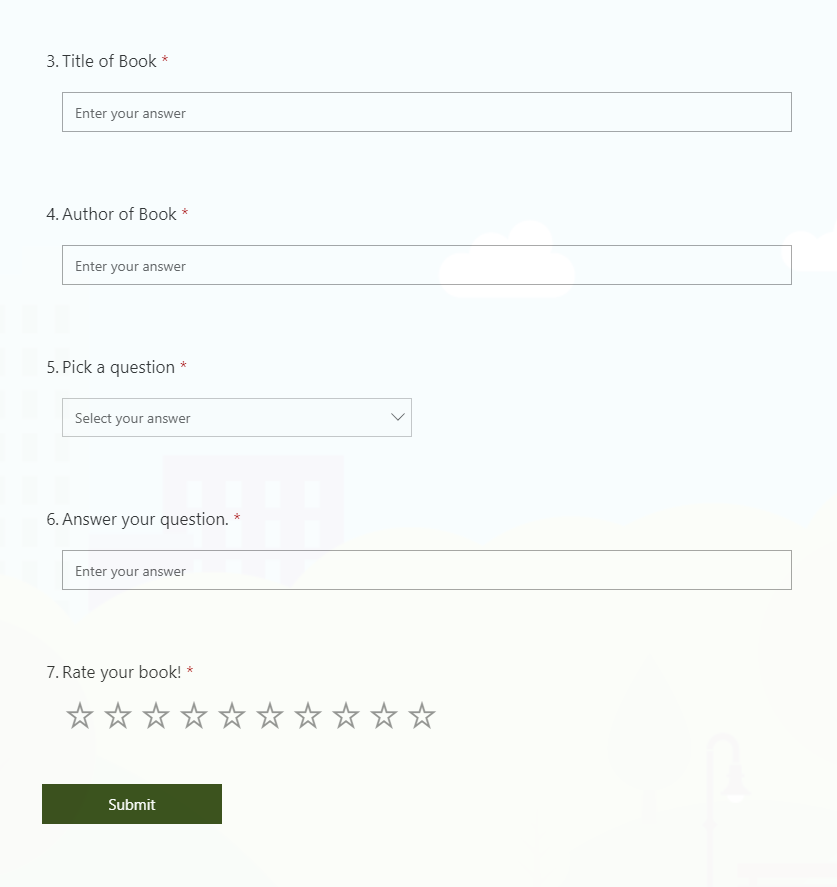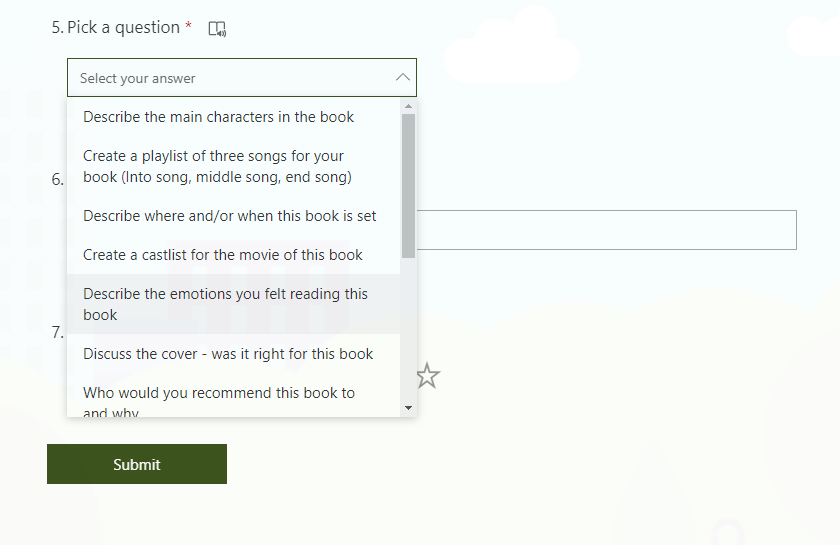Digital Reading Passports – St George’s School, Edinburgh
Category: Blog, Branches and Groups, SLG Scotland
We regularly showcase an activity or project that furthers one of the strategic aims of Vibrant Libraries, Thriving Schools (VLTS): A National Strategy for School Libraries 2018 – 2023. Here, Senior Library Assistant Chloe Elder tells us more about how her library team set up digital reading passports for their pupils.
Name
Chloe Elder
School
St George’s School, Edinburgh
Title
Digital Reading Passports
Furthering Strategic Aim:
2: Information, Digital Literacy and Digital Creativity
3: Literacy, Numeracy and Family Learning
4: Health and Wellbeing
The Initiative
Paper reading passports had been used during library lessons since around 2018, and one can find many iterations of these across school libraries. At St George’s School, Edinburgh, the impacts of COVID-19 directed us to offer the scheme so that passport entries could be completed online on personal devices. The Digital Reading Passport offers students in Remove to Upper 4 (P7 to S2) a place to record their reading for pleasure and engage with their reading further.
The passports consist of a Microsoft Form where the student is asked to record the title and author of a recent read as well as a rating out of ten. The student is then prompted to choose one from a selection of further engagement questions to promote reflection on what they have just read.
All responses are collated automatically in an Excel spreadsheet. The librarian then reads the entry and assigns the student either 5, 10 or 15 points. The more challenging the book – in terms of reading level, vocabulary, theme or something that expands their reading horizons! – the higher the points. This requires a certain level of familiarity with students and their reading, but this comes naturally over time while receiving passport entries and from interaction with students in the library and in library lessons.
Students earn points throughout the year, winning prizes at checkpoints of 30, 60, 90, 150 and 250 points (points assigned and total points are tracked by the librarian.) Prizes range from chocolate and sweets to book tokens.
The scheme is launched to students with an introduction and instructions during an in-person library lesson near the start of the academic year, but reminders of the scheme (and the potential for prizes) are useful to boost student uptake.
Impact
Going digital has changed the nature of the passport scheme in a positive way. Rather than only completing passport entries during class time, students may record books anytime and anywhere. The impact can be seen in the amount of student uptake in the scheme and generally more thorough responses to the further engagement question.
Over the 2020/2021 school year, we received over 570 responses across the three year groups. A handful even continued to complete entries over the summer holidays! And our proud top point-earner submitted 70+ entries earning her a total of 500 points. The quality of further engagement responses has also been impressive. Some answers exceed 200 words and demonstrate reflection and growth.
The Digital Reading Passport responses also provide insight into what students are reading. This can be especially useful to learn about books that may be popular among students that we don’t currently have in the library. Or we can learn more about the books we do have based on student reflections and comment.
- ‘It’s really useful and easy to access. I like the question at the end. It helps me think about the books I’ve read.’ – Folake.
- ‘The reading passports are a great way of encouraging students to read, and also reflect on what they’re reading: genre, challenge, etc. It encourages a positive attitude to reading for pleasure, as it’s not an arduous or demanding process. Doing it digitally frees things up, especially for the keenest readers, to take ownership of their reading journey.’ – Andrew Leask, Head of e-Learning and English Teacher.


